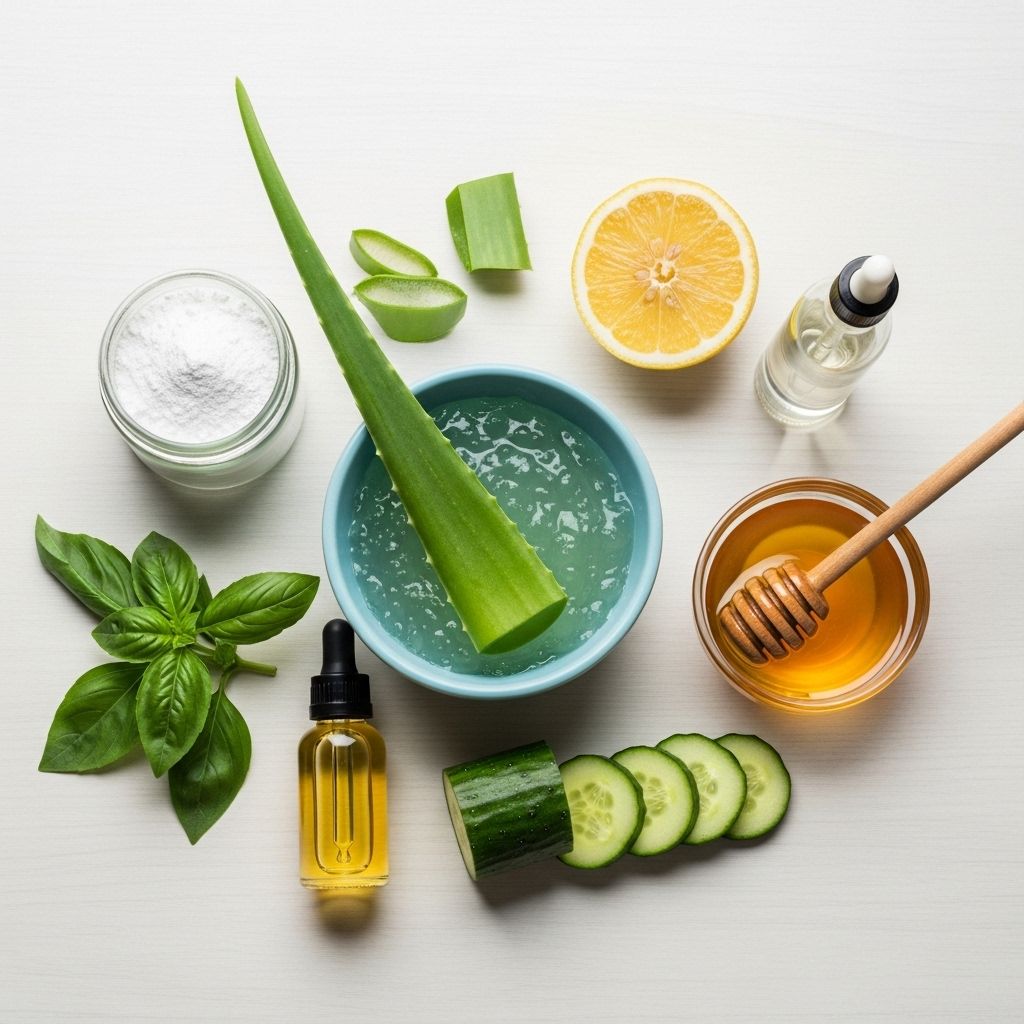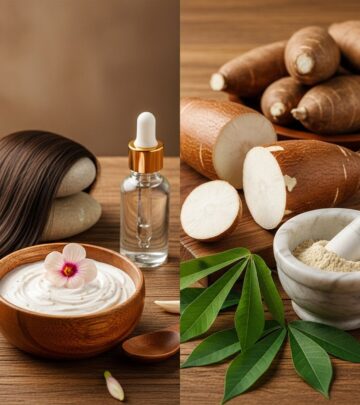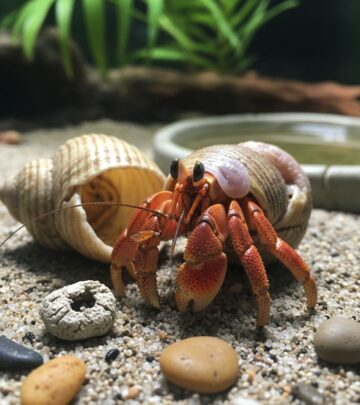8 Effective Home Remedies to Soothe Bug Bites
Discover proven natural remedies and simple tips for calming insect bites and protecting your skin outdoors.

Insect bites are a common annoyance, especially during outdoor activities. While most bug bites are harmless, they can cause significant discomfort, including swelling, itchiness, redness, and sometimes allergic reactions. Fortunately, several natural remedies can effectively reduce symptoms and promote faster healing. This article explores the best home remedies for bug bites, why they work, tips to prevent future bites, and when to see a doctor.
Key Takeaways
- Bug bites may lead to swelling, rashes, itching, and numbness, while severe reactions can include nausea or difficulty breathing.
- Natural remedies—like honey, turmeric, neem oil, and apple cider vinegar—can help calm affected skin.
- Prevention methods include covering skin, using repellents, and avoiding scented products outdoors.
- If you experience any signs of allergic reaction or infection, seek medical attention promptly.
Understanding Bug Bites
Bug or insect bites can cause a range of skin reactions depending on the insect species and individual sensitivity. Typical symptoms include:
- Redness and swelling at the bite site
- Itchiness or tingling
- Pain or mild burning
Some individuals may develop moderate to severe reactions, such as fever, nausea, or swelling of the lips and face. It is important to monitor symptoms, as severe or systemic reactions may require urgent medical care.
Top 8 Home Remedies for Bug Bites
Below are eight proven natural remedies that effectively help calm irritated skin, relieve itching, and reduce swelling after bug bites.
1. Honey
Honey is well-known for its natural antimicrobial and anti-inflammatory properties. It can help soothe irritation, reduce swelling, and prevent infection in the bite area.
- How to apply: Dab a thin layer of raw honey onto the bug bite. Leave it on for 15-20 minutes and then rinse off with water.
- Frequency: Repeat 2-3 times daily as needed.
- Why it works: Honey’s natural enzymes promote healing and its viscosity creates a protective barrier over the skin.
2. Baking Soda
Baking soda (sodium bicarbonate) is a classic remedy that counters itchiness through its alkaline nature, which helps neutralize skin irritation and swelling.
- How to apply: Mix 1 teaspoon of baking soda with 3 teaspoons of water to form a paste. Apply to the bite with a cotton ball and let it dry. Rinse after it dries completely.
- Frequency: Use 2-3 times daily.
- Why it works: Relieves itch and reduces localized inflammation by neutralizing acidic toxins left by insect saliva.
3. Apple Cider Vinegar
Apple cider vinegar possesses both anti-inflammatory and antimicrobial properties, useful for soothing swelling and preventing further infection at the site of the bite.
- How to apply: Mix equal parts apple cider vinegar and water (1 tablespoon each). Dampen a cotton ball with the solution and dab onto the affected skin.
- Leave on: For 20–30 minutes before rinsing off.
- Frequency: Reapply up to 2–3 times daily.
- Why it works: Reduces itching and swelling while cleansing the area naturally.
4. Aloe Vera
Aloe vera gel is famous for its ability to soothe inflammation and hydrate the skin, making it ideal for bug bites that are hot, itchy, or red.
- How to apply: Use fresh aloe vera gel or a pure, commercial product. Apply directly to the bite and let it absorb.
- Frequency: Use as often as needed for itch or irritation.
- Why it works: Aloe contains compounds that accelerate healing and provide a cooling sensation.
5. Turmeric Paste
Turmeric has been used in traditional medicine for its anti-inflammatory and healing properties.
- How to apply: Make a paste with 1 teaspoon of turmeric powder and a little water. Apply to the bite and leave on for 20 minutes, then rinse.
- Frequency: Once or twice daily as needed.
- Why it works: Contains curcumin, which reduces swelling and aids skin repair.
6. Neem Oil
Neem oil has strong antimicrobial and anti-inflammatory effects, making it a useful topical solution for bug bites.
- How to apply: Dilute neem oil with a few drops of coconut or olive oil and apply to the bite area.
- Frequency: Use up to 2–3 times per day.
- Why it works: Heals the skin and prevents secondary infection.
7. Cold Compress
Cold compresses or ice packs immediately help reduce swelling and numb the area, decreasing pain and itch.
- How to apply: Wrap ice in a clean cloth and place on the bite for 10–15 minutes at a time.
- Frequency: Repeat every few hours if needed.
- Why it works: Cold restricts blood flow, reducing inflammation and numbing nerve endings.
8. Oatmeal Bath
Oatmeal is valued for its soothing and anti-itch properties, especially for widespread bites or sensitive skin.
- How to apply: Add 1–2 cups of colloidal oatmeal to a lukewarm bath and soak for at least 15–20 minutes.
- Frequency: Once or twice daily or as recommended for extensive bites.
- Why it works: Compounds in oats relieve irritation and help restore the skin barrier.
Identifying Different Bug Bites
Recognizing what type of insect bit you can help determine the proper treatment and whether medical care is needed. Here are some distinguishing features:
- Mosquito bites: Appear as raised, red, itchy bumps soon after the bite.
- Bed bug bites: Small, red bumps often in a line or cluster; very itchy and found on exposed areas.
- Tick bites: May present as a red spot with a central puncture; look for a “bull’s-eye” rash which may be a sign of Lyme disease.
- Bee and wasp stings: Cause immediate pain, swelling, and redness. The sting site usually has a white center.
Tips To Avoid Bug Bites And Stings
Prevention is the best strategy. Follow these practical tips to minimize risk:
- Wear clothes that fully cover your arms and legs, especially outdoors.
- Choose neutral colors over floral prints, which can attract insects.
- Avoid perfumes, scented lotions, and body sprays.
- Apply a proven insect repellent when spending time outdoors.
- Cover food and drinks outside to prevent attracting bugs.
- Be vigilant around insect nests or hives and consult pest control professionals for removal.
- Install screens on doors and windows to keep insects out.
- Sleep under a mosquito net in high-risk areas or use a fan to deter mosquitoes indoors.
- Clear standing water from your yard or garden to prevent mosquito breeding.
- Trim overgrown vegetation and keep outdoor areas tidy.
- Seal cracks or gaps in windows and doors to block entry points.
- Avoid going barefoot or wearing open-toed shoes in grassy, wooded, or infested areas.
- Be most cautious at dawn and dusk when many insects are most active.
When To See a Doctor
While most insect bites are mild, seek medical help immediately if you experience:
- Difficulty breathing, chest tightness, or swelling of the face or lips (possible anaphylaxis)
- Severe pain, extensive redness, or the bite site seems infected (pus, increasing swelling, fever)
- Prolonged swelling or signs of a systemic allergic reaction
Always monitor your symptoms closely. If new or worsening issues develop, prompt medical attention is necessary.
Infographic: Quick Tips to Prevent Bug Bites
- Practice good personal hygiene and keep living spaces clean.
- Use a mosquito net in areas with high bug activity.
- Maintain your yard to discourage insect breeding.
- Wear long sleeves, pants, and covered footwear outdoors.
- Opt for unscented skin care products in insect-prone environments.
Frequently Asked Questions (FAQs)
Q: What is the fastest way to stop itching after a bug bite?
A: Cold compresses, aloe vera gel, and baking soda paste can provide near-instant relief from itching after a bug bite. Over-the-counter hydrocortisone cream is also effective for stubborn itch.
Q: Can bug bites become serious or life-threatening?
A: While most bug bites are harmless, some can cause severe allergic reactions, especially bee or wasp stings. Seek medical care immediately for symptoms like difficulty breathing, throat tightness, or persistent swelling.
Q: Are home remedies safe for children?
A: Most remedies, like oatmeal baths or aloe vera, are safe for children; always do a patch test first and consult a pediatrician before using essential oils or new topical treatments on young children or babies.
Q: How can I prevent bug bites naturally?
A: Use essential oil-based repellents (such as citronella or eucalyptus), wear full-coverage clothing, and avoid scented products. Eliminating standing water from your surroundings also helps decrease mosquito populations.
Q: Should I scratch a bug bite?
A: Avoid scratching, as this can break the skin, increase irritation, and raise the risk of infection. Consider applying an ice pack or soothing remedy instead.
Read full bio of medha deb











